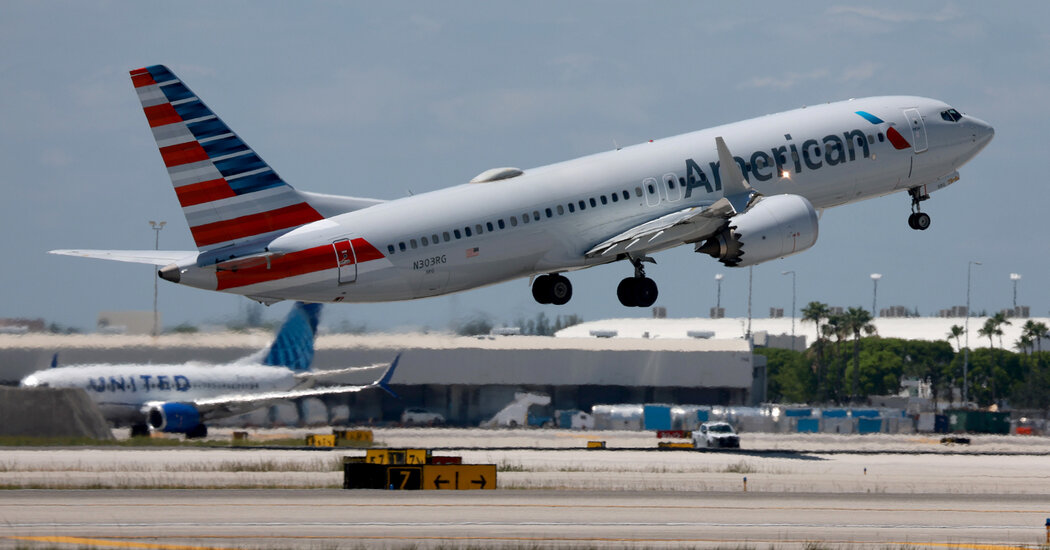The Department of Transportation fined American Airlines $4.1 million on Monday, saying the carrier violated federal rules by keeping passengers stuck on the tarmac for hours on dozens of occasions in recent years.
The agency said the fine was the largest penalty ever imposed for being late on the tarmac. The violations are due to 43 domestic flights between 2018 and 2021, as passengers were stuck on the runway for more than three hours without having the opportunity to get off the plane, according to the administration.
The majority of delays occurred at Dallas-Fort Worth International Airport, the largest hub for American Airlines. Other incidents occurred at George Bush Intercontinental Airport in Houston, San Antonio International Airport and Ronald Reagan National Airport near Washington. The most extensive delay was in San Antonio, when a flight carrying 105 passengers sat on the runway for six hours in August 2020.
“This is the latest action in our ongoing campaign to enforce the rights of airline passengers,” Transportation Secretary Pete Buttigieg said in a statement. “Whether the issue is excessive tarmac delays or problems getting refunds, the Department of Transportation will continue to protect consumers and hold airlines accountable.”
Sarah Gantz, a spokeswoman for American Airlines, said the company has gone to great lengths to reduce delays on the tarmac, such as deploying a tool that adjusts the timing of flights in response to inclement weather.
“Although these delays were the result of exceptional weather events, the flights represent a very small number of the 7.7 million flights during this time period,” Ms. Jantz said in a statement. “We have since apologized to the affected customers and are sorry for any inconvenience caused.”
American Airlines will only have to pay half of the $4.1 million fine to the federal government. For the other half, the government gives airlines credit for compensating passengers for delays.
The federal ban on prolonged tarmac delays dates back to the Obama administration. For domestic flights, airlines are not allowed to keep passengers seated on the tarmac for more than three hours without giving them an opportunity to disembark. For international flights, the maximum is four hours.
During Mr. Buttigieg’s tenure, the Department of Transportation has tried to stress its desire to improve the flying experience for travelers and hold airlines accountable for their performance.
